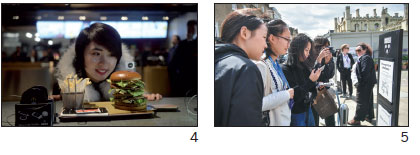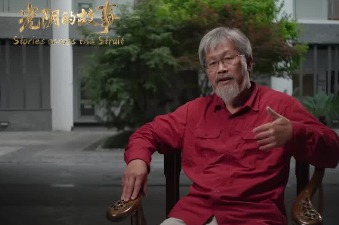News in review



Monday November 20
Pension fund to get State assets boost
China will transfer a chunk of State financial assets to its social security funds, a program that experts believe will ease the pressure of pension payments as the aging population continues to grow.
Ten percent of State-owned equity, including shares of State-owned enterprises (SOEs) and fi nancial institutions, will be transferred to the National Council for Social Security Fund and smaller, local State-owned companies, the State Council, China's Cabinet, announced.
The recipients of the transferred shares will be able to earn dividends and sell their shares, but they will not be involved in the contributing parties' management, the document said. A three-year freeze from the time of the transfers will be placed on recipients selling the shares.
These moves will ensure the sustainable development of China's pension insurance system, while also diversifying the capital structure of wholly Stateowned companies as part of an ongoing reform to improve their market effi ciency and competitiveness, the Ministry of Finance said in an online statement.
Shanghai hospital banks breast milk
Premature babies at a Shanghai pediatric hospital's neonatal intensive care unit will no longer be fed infant formula. Instead, they'll get breast milk from their own mothers or donated by others.
The Children's Hospital of Fudan University has established for the first time in the city a breast milk bank especially for newborns in the ICU.
During trials in recent months, 25 mothers donated more than 200,000 milliliters of breast milk to the bank, benefi ting 32 premature infants, the hospital said.
Previously it was common practice for all premature babies to be fed with infant formula either for convenience or because their mothers were not able to secrete enough milk. But breast milk is extremely important for premature newborns, especially the most vulnerable ones, said Cao Yun, director of the hospital's neonatal ICU. (Photo 1)
Tuesday November 21
Advanced electronics needs met in China
More than 85 percent of the key electronic parts in Chinese defense and high-tech equipment are now domestically made, meaning the country has the ability to be self-sufficient in advanced electronic components, offi cials said on Monday.
Over the past decade, the technological gap between China and traditional electronic powerhouses like the United States has shortened from 15 years to five years, said Diao Shijing, director of information technology at the Ministry of Industry and Information Technology.
At the same time, the ratio of domestically made key electronic parts in defense and high-tech equipment rose from 30 percent to 85 percent. "China is now fully capable of producing secure and reliable advanced electronic components, and will rely even less on imports," he said.
Alibaba expands in offl ine retail
Alibaba Group Holding Ltd is expanding into offl ine retail by acquiring more than one-third of China's largest hypermarket chain operator.
The e-commerce giant announced it would purchase 36.16 percent of Sun Art Retail Group, which operates around 450 hypermarkets across China under the RT-Mart and Auchan banners.
The $2.88 billion deal would make Alibaba the second-largest stakeholder in a business that generated $15.09 billion of revenue in 2016.
Bloomberg reported that Alibaba is using Sun Art to quicken an assault on the $4 trillion brick-and-mortar retail arena, escalating competition with Wal-Mart, the world's largest retailer, which is focused on turning around a sluggish Chinese operation through a partnership with JD.com Inc. (Photo 2)
Wednesday November 22
SOEs see rapid profi t growth
Chinese State-owned enterprises (SOEs) continued to see rapid profit growth in the first 10 months of the year as the economy held steady, official data showed.
Combined SOE profits rose 24.6 percent year-onyear to $360 billion for the January-October period, the Ministry of Finance said on its website.
The growth slowed slightly from the 24.9-percent increase in the first three quarters but was still markedly higher than the 21.7-percent expansion seen in the first eight months.
Business revenue of SOEs during the period was up 15.4 percent from a year ago., and operating costs went up 14.6 percent. (Photo 3)
McDonald's going for product innovations in China
High-end hamburgers will be the focus of product innovations in McDonald's in China, according to the fast-food chain's CEO.
Phyllis Cheung made her remarks at McBanquet, an annual event showcasing the burger chain's innovative ideas for menu and services. Earlier this year, Chinese fi nancial fi rm Citic took the majority stake (52 percent) in McDonald's operations in China.
More touchscreens, table services and delivery services will be available in the restaurants across China, as "fast" and "convenience" are redefi ned, she said. By the end of 2018, some 90 percent of existing 2,500 stores will become renovated into "restaurants 2.0" with digital devices facilitating mobile ordering, payment, and service ratings and feedback.
The company expects to nearly double the number of stores in the China market to 4,500 by 2022 with a focus on growth in third- to fi fth-tier cities, said Cheung. (Photo 4)
Thursday November 23
New home-buyer policies seek to cut risks
The government is issuing new policies that reduce potential risks for home buyers.
China will ban property developers, real estate agencies, as well as internet fi nance and micro-loan companies from providing illicit down payment fi nancing for buyers. In early November, the Ministry of Housing and Urban- Rural Development issued a regulation that rules out any kind of financing for down payments on buying property.
It is part of government eff orts to rein in heated property prices in major cities such as Beijing and Guangzhou. It was made clear in the regulation that using funds obtained through channels, such as consumer loans for property purchases, will also be banned.
"The new regulation targets clearly preventing the fi nancial risk from happening in the real estate market, and I think this is partly a learning experience from the US financial crisis in 2008 and 2009, during which many buyers bought properties with almost zero down payments," said Zhu Ning, Oceanwide professor of fi nance at Tsinghua University.
More families sending children on study tours
An increasing number of Chinese families are sending their children on study tours in foreign countries.
A report published recently by online travel agency Ctrip shows that at least 800,000 overseas study tours were booked for Chinese children during the summer vacation, a 70 percent rise from the same period last year.
Each tour cost an average of $3,770 per person, and most were booked by middle-class families in large cities for prehigh school children, according to the report. About 13 percent were booked for children ages 3 to 6, while those ages 7 to 12 accounted for 31 percent.
While the United States and the UK have long dominated as popular destinations, countries in Africa, South America and Southeast Asia have been visited more frequently in recent years. (Photo 5)
Friday November 24
Workplace accidents, deaths decline
China has seen fewer total workplace accidents and deaths in the first 10 months this year compared with 2016.
About 40,000 accidents occurred during the period, a decline of 26.9 percent year-on-year, according to the State Administration of Work Safety. Workplace accidents killed 29,000 people, down 20.4 percent from 2016.
The country saw 21 major accidents in which more than 10 people died, five fewer than last year. The death toll in those accidents also decreased by 110 to 293.
The declines are the result of tightened site inspections and stricter punishments, the administration said.
Mobike in Berlin as it expands to 200 cities globally
Chinese bike-sharing titan Mobike Technology announced operations in Berlin, meeting the company's goal of expanding to 200 cities globally by the end of this year.
Chris Martin, vice-president for Mobike's international business, said Berlin is an ideal location to introduce the bike-sharing service in Germany, as the bicycle was invented in Germany 200 years ago. The Beijingbased company said it will soon enter more cities in Germany.
Mobike has deployed more than 7 million orange-hued dockless bikes in 200 global cities and has over 200 million registered users, according to company figures.

(China Daily 11/24/2017 page12)
Today's Top News
- Free trade zones incubators for nationwide policies
- US scholar: China's 15th Five-Year Plan charts path to future
- Coding the law for smart governance
- China ready to take tougher steps over Takaichi remarks
- Mobile judicial teams ensure justice for all
- Historic cross-boundary marathon marks a milestone






























